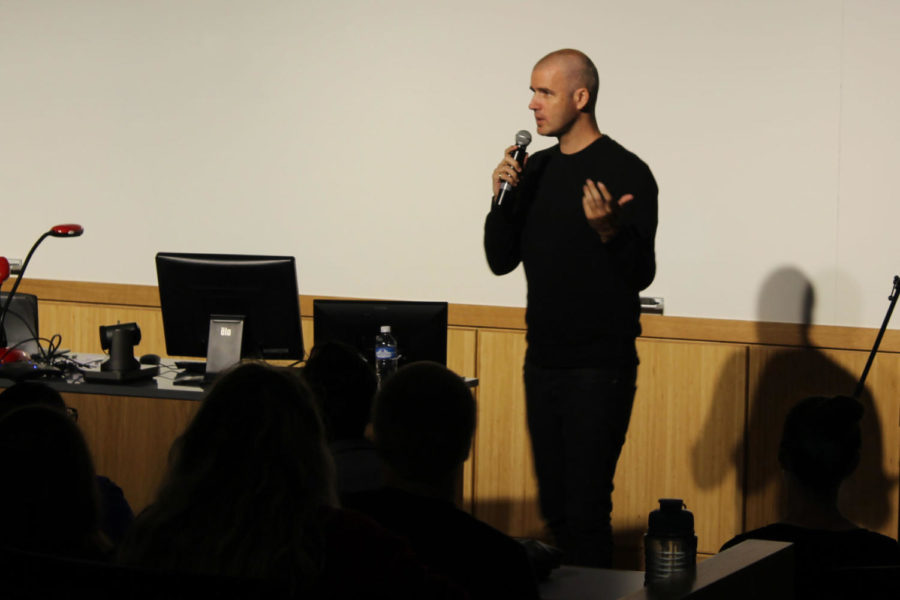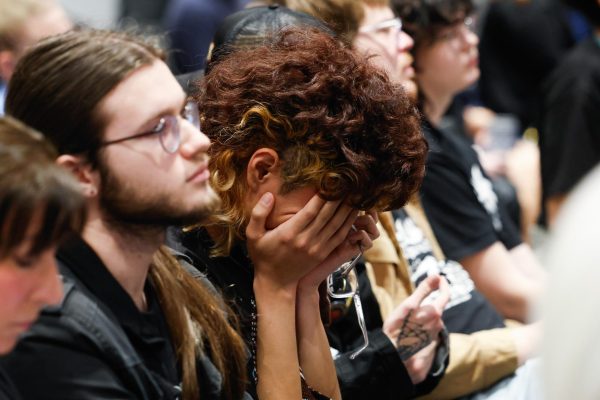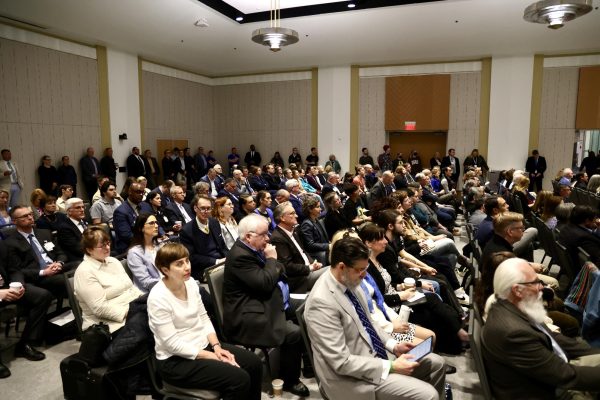To Write Love On Her Arms founder visits
April 19, 2017
Beyond the Blue director JoAnna Scott hosted an education and advocacy event Tuesday night featuring the founder of To Write Love On Her Arms, Jamie Tworkowski.
Beyond the Blue is a UK student organization under the Center for Community Outreach that advocates for five social justice issues, one of which is mental illness. Scott said it was a natural step to invite Tworkowski to speak on campus because of the stigma of mental illness and her inspiration from Tworkowski’s book, If You Feel Too Much.
“I hope that the students who attend this will find a way to continue educating and advocating for this issue, as well as find some kind of peace in the fact that it’s okay to feel too much,” Scott said.
TWLOHA was founded in 2006 and has developed into a non-profit organization that is dedicated to providing hope and community to those who are struggling with mental illness, addiction, self-harm and suicidal thoughts.
Tworkowski founded TWLOHA after publishing a story of the same title on MySpace about a friend, Renee Yohe, who was in the process of entering rehab for her addiction and self-injury. The original post quickly garnered attention after TWLOHA t-shirts were worn by bands like Switchfoot, and soon Tworkowski was receiving messages from all over the world from people with similar stories.
“The phrase was very much a goal: to write love on her arms,” Tworkowski said.
Today, the organization works to provide resources and encouragement to people seeking help and recovery, distributing information on counseling centers and suicide hotlines across the globe.
With approximately 20 million Americans currently battling depression, Tworkowski said he hopes that TWLOHA can encourage people to speak openly about their experiences and admit when they need professional help.
“It can feel like the stigma thing is confusing, or heavy, or hard, but I think it really begins to go away when we just start to talk openly about these things,” Tworkowski said.
Tworkowski spoke of his belief that people need people, and that it is essential to establish a support system through recovery from these issues. He shared the message that we were created for a reason, and that every person’s story matters.
“It’s okay to be honest and it’s okay to ask for help,” Tworkowski said.
























































































































































